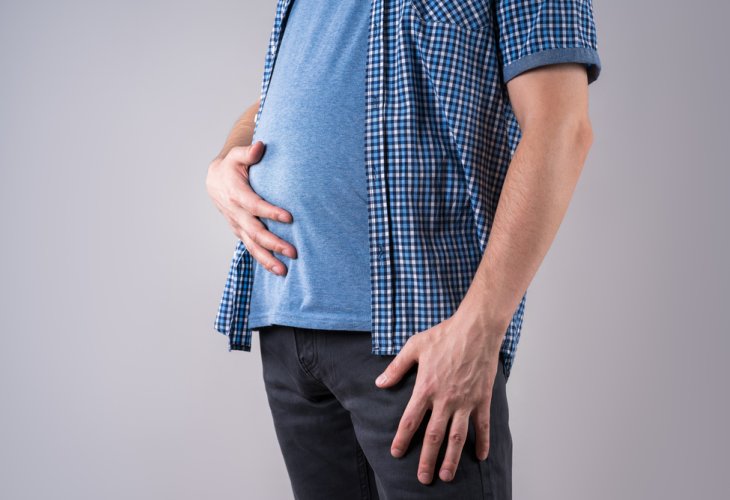Why Does Our Stomach Bloat After Eating?
Discover how to prevent post-meal bloating and tips on managing it if it occurs.
 (Photo: shutterstock)
(Photo: shutterstock)Ever felt that uncomfortable sensation after a meal? It's often tied to our eating habits. Sometimes, our digestion isn't functioning properly, leading to food fermenting and causing a buildup of gas in the intestines.
What can you do?
Lactose, the sugar found in milk, is broken down in the intestines by an enzyme called lactase. Many people have sensitivities, especially when consuming large amounts of dairy, which makes it difficult to digest and can lead to bloating.
There are also many who aren't diagnosed with celiac disease but are sensitive to gluten. Gluten is found in foods made from wheat, rye, spelt, and barley.
Certain baked goods have added pure gluten to achieve optimal results, such as fluffy and tall bread. The issue is more pronounced in light breads, which contain large amounts of gluten for lighter, larger slices.
Diet products containing artificial sweeteners can also cause bloating. Carbonated drinks contain air bubbles that can get trapped in the stomach, causing bloating. If these drinks also contain artificial sweeteners, the effect is doubled.
The body's attempt to detoxify itself results in fermentation and bloating, especially when consuming preservatives and flavorings common in processed foods.
Chewing gum causes air swallowing, which leads to stomach bloating. The chewing prompts digestive juices in anticipation of food.
Some fruits and vegetables are high in fiber and can be challenging for a weak stomach to digest. Chewing all foods well, particularly raw fruits and vegetables, is crucial. If not chewed properly, the stomach processes large chunks, which takes more time and can cause additional bloating. Saliva contains enzymes aiding digestion, so proper, slow, and extended chewing helps the stomach break down food.
Eating small meals throughout the day is better than heavy, full meals which are hard to digest and create discomfort.
Gently massaging the stomach in a clockwise direction is highly recommended. Using olive or almond oil with a few drops of peppermint essential oil can help.
Walking also alleviates and reduces bloating—a moderate 20-minute walk can help relieve the load.
Chamomile or fennel seed teas can also soothe the digestive system.
Zohara Shavit is an N.D. naturopath with extensive experience in treatment and counseling as well as workshop facilitation. To book a free workshop, call 073-2221290

